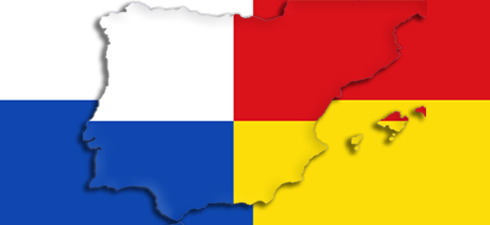Pan-Iberism has won the Portuguese elections. Not the Iberian federalism envisioned by such diverse personalities as Fernando Pessoa and Agustí Calvet Gaziel, Henriques Moreira and Francesc Pi i Margall, Oliveira Martins and Francesc Macià, but modern economic Iberism, the close intertwining of Spanish and Portuguese interests since they joined the European Economic Community simultaneously in 1986.
The business sector has put its money on José Sócrates ensuring the irreversible economic integration of the peninsula. And those Portuguese tired of the Socialist leader's school of Zapatero style of spin were unable to put forward a persuasive centre-left alternative via their own champion Manuela Ferreira Leite, operated by remote-control by the Portuguese president, Aníbal Cavaco Silva.
Anti-Spanish sentiment doesn't work
Ms Ferreira Leite sought to win the elections with three slightly Salazarist-tinged messages: a return to fiscal austerity, no to the high-speed train between Lisbon and Madrid, and reactivation of anti-Spanish prejudices – and all that packaged in a media unfriendly campaign. Ferreira Leite, aged 68, with hardly any make-up on in election posters and consistently keeping her distance from the television cameras and microphones, somehow called to mind the legendary figure of María Jesús Caetano, the dictator Salazar’s eternal governess and a singular de facto power in a formerly autarchic and introspective Portugal. This was too much dejection for a country that is beginning to emerge from the recession.
The anti-Hispanicism was a serious mistake. The Portuguese do not wish to cold-shoulder Spain (even though they do not desire to throw themselves unconditionally into its arms either). To the young, Spain-baiting is a bona fide anachronism. Portugal's young want opportunities: be it in Lisbon, Porto, Madrid, Barcelona, Río de Janeiro and Luanda.
Sócrates won because there was no alternative and because he knew how to keep to the centre. Zapateristas take note: the Portuguese Socialists prevailed with two parties on their left flank (the Left Bloc and the old Communist Party) that won nearly 18% of the vote between them.
Election
Narrow victory for Sócrates

The socialists led by outgoing Prime Minister José Sócrates have won the general election. But their 36.5% of the vote and the fact that they lost 25 seats will effectively deprive them of a majority in parliament. Manuela Ferreira Leite's centre-right party was their closest rival at 29%. As Público reports, "the socialists lost half a million votes, but they still managed to win." The daily further notes that "José Sócrates was thought to be weak and politically dead in the water. But he has survived and may even recover a second wind."
For the Socialist party and José Sócrates, this is a limited and somewhat unconvincing victory," notes Diário de Notícias, "which nonetheless is extremely destructive for Manuela Ferreira Leite and the Social Democratic Party." It remains to be seen if Sócrates will be able to form a government, because the parliament's other political groups, both on the Left and the Right, appear unwilling to join forces with him.
Was this article useful? If so we are delighted!
It is freely available because we believe that the right to free and independent information is essential for democracy. But this right is not guaranteed forever, and independence comes at a cost. We need your support in order to continue publishing independent, multilingual news for all Europeans.
Discover our subscription offers and their exclusive benefits and become a member of our community now!












